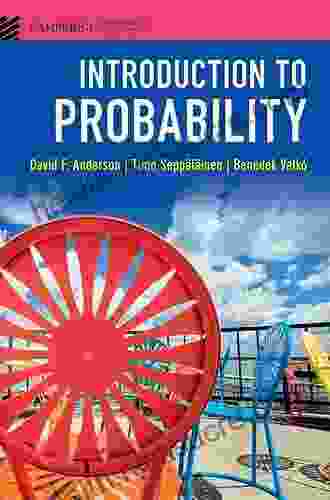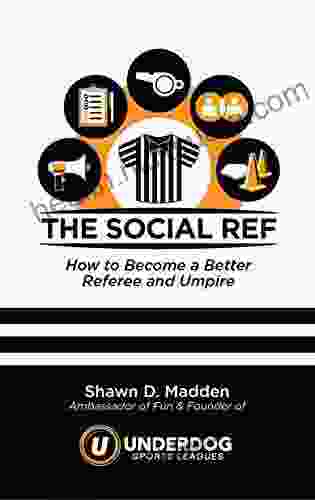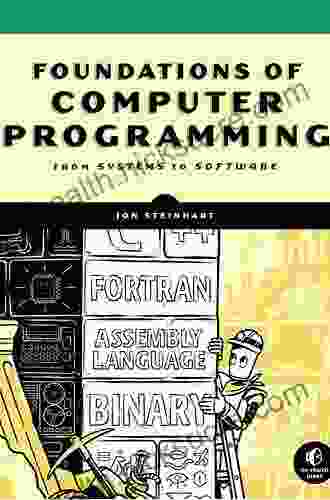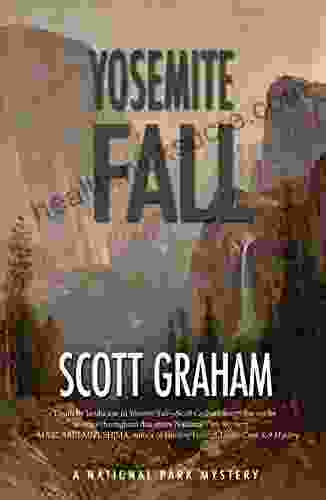Mastering the Art of Officiating: A Comprehensive Guide for Aspiring Referees and Umpires

In the realm of sports, the role of referees and umpires is pivotal in ensuring fair play, maintaining order, and upholding the integrity of the game. For those who aspire to don the iconic stripes or don the umpire's mask, embarking on the path to becoming an exceptional official requires a deep understanding of the rules, technical proficiency, and an unwavering commitment to impartiality. This comprehensive guide will provide you with an in-depth exploration of the essential steps and strategies for succeeding in the challenging and rewarding world of officiating.
Understanding the Role and Responsibilities
Before embarking on the journey to becoming a referee or umpire, it is crucial to gain a clear understanding of the role and responsibilities that come with these positions. Here are the key aspects to consider:
4.7 out of 5
| Language | : | English |
| File size | : | 3527 KB |
| Text-to-Speech | : | Enabled |
| Screen Reader | : | Supported |
| Enhanced typesetting | : | Enabled |
| Word Wise | : | Enabled |
| Print length | : | 190 pages |
| Lending | : | Enabled |
- Ensuring Fair Play: The primary duty of referees and umpires is to enforce the rules of the game impartially and consistently, thereby creating a level playing field for all participants.
- Maintaining Order: Officials are responsible for maintaining order and discipline during the game, including handling any disputes or conflicts between players, coaches, or spectators.
- Interpreting the Rules: Referees and umpires must have a thorough understanding of the game's rules and be able to interpret them accurately in real-time situations.
- Making Timely Decisions: Officiating often involves making split-second decisions that can significantly impact the outcome of the game. Officials must be able to assess situations quickly and make judgments based on the rules.
- Communicating Effectively: Clear and concise communication is essential for effective officiating. Referees and umpires must be able to convey decisions, explanations, and instructions to players, coaches, and spectators in a professional manner.
Essential Steps to Becoming a Referee or Umpire
The path to becoming a qualified referee or umpire typically involves the following steps:
- Attend Training and Certification Programs: Most officiating organizations offer training and certification programs that provide aspiring officials with the necessary knowledge, skills, and practical experience. These programs typically cover topics such as rule interpretation, game management, and conflict resolution.
- Gain Practical Experience: After completing the training program, it is essential to gain practical experience by officiating at lower-level games. This hands-on experience will allow you to apply your knowledge and develop your officiating skills in real-time situations.
- Advance through the Levels: As you gain experience and demonstrate competence, you can advance through the officiating levels. Each level typically involves officiating at more competitive games and taking on additional responsibilities.
- Maintain Continuing Education: Officiating is a constantly evolving field, and officials must stay updated with the latest rules, interpretations, and best practices. Continuing education courses, workshops, and online resources can help you maintain your knowledge and skills.
- Seek Mentorship and Support: Experienced referees and umpires can provide valuable mentorship and support to aspiring officials. Seek guidance from those who have successfully navigated the officiating path, and learn from their insights and experiences.
Key Attributes and Skills for Successful Officiating
In addition to the formal training and experience, successful referees and umpires possess certain key attributes and skills that contribute to their effectiveness:
- Physical Fitness: Officiating can be physically demanding, requiring officials to be in good shape to keep up with the pace of the game.
- Mental Toughness: Referees and umpires often face pressure, criticism, and even hostility from players, coaches, and spectators. Mental toughness is essential to withstand these challenges and maintain focus and composure.
- Confidence: Officials need to have confidence in their decisions and be able to communicate them clearly and assertively.
- Communication Skills: Excellent communication skills are crucial for effective officiating, enabling officials to convey decisions, explain rulings, and handle conflicts effectively.
- Patience and Diplomacy: Patience and diplomacy are essential qualities for referees and umpires, who must be able to deal with difficult situations and individuals in a calm and respectful manner.
Strategies for Continuous Improvement
To continuously improve as a referee or umpire, consider the following strategies:
- Study the Rules and Interpretations: Stay up-to-date with the latest rules and interpretations by regularly reviewing official rulebooks, attending workshops, and participating in online forums.
- Seek Feedback: Ask experienced referees or umpires to provide constructive feedback on your officiating. This can help you identify areas for improvement and enhance your overall performance.
- Analyze Game Footage: Reviewing game footage of your officiating can provide valuable insights into your strengths and weaknesses. Analyze your positioning, decision-making, and communication skills to identify areas where you can improve.
- Attend Officiating Clinics and Workshops: Participate in officiating clinics and workshops to learn from experienced instructors and improve your skills through practical exercises and discussions.
- Stay Informed about Best Practices: Keep abreast of best practices and emerging trends in officiating by reading industry publications, attending conferences, and connecting with other officials.
Ethical Considerations and Challenges
As a referee or umpire, it is imperative to uphold the highest ethical standards and integrity. Common ethical considerations and challenges include:
- Impartiality: Referees and umpires must strive to be impartial and avoid any appearance of bias towards one team or player.
- Conflict of Interest: Officials should avoid situations where personal relationships or financial interests could compromise their impartiality.
- Abuse and Harassment: Referees and umpires may face verbal or physical abuse from players, coaches, or spectators. It is important to remain calm and professional while upholding the rules and protecting yourself.
- Dealing with Unsportsmanlike Conduct: Officiating often involves dealing with unsportsmanlike conduct, such as excessive arguing, dissent, or physical altercations. Officials must be able to address these situations effectively while maintaining control of the game.
- Accountability: Referees and umpires are accountable for their decisions and actions. It is important to accept responsibility for errors and learn from mistakes to continuously improve.
Becoming a successful referee or umpire is a challenging yet rewarding journey that requires a deep understanding of the game, technical proficiency, and an unwavering commitment to fairness and integrity. By following the steps outlined in this comprehensive guide, aspiring officials can equip themselves with the knowledge, skills, and attributes necessary to navigate the path to excellence. Remember, the journey is not just about enforcing rules but also about fostering sportsmanship, maintaining order, and contributing to the overall enjoyment and integrity of the game.
So, if you are passionate about sports and possess the attributes of a true official, embrace the challenge and embark on this rewarding path. The world of officiating awaits your contributions, and with dedication and hard work, you can become an invaluable asset to your chosen sport.
4.7 out of 5
| Language | : | English |
| File size | : | 3527 KB |
| Text-to-Speech | : | Enabled |
| Screen Reader | : | Supported |
| Enhanced typesetting | : | Enabled |
| Word Wise | : | Enabled |
| Print length | : | 190 pages |
| Lending | : | Enabled |
Do you want to contribute by writing guest posts on this blog?
Please contact us and send us a resume of previous articles that you have written.
 Fiction
Fiction Non Fiction
Non Fiction Romance
Romance Mystery
Mystery Thriller
Thriller SciFi
SciFi Fantasy
Fantasy Horror
Horror Biography
Biography Selfhelp
Selfhelp Business
Business History
History Classics
Classics Poetry
Poetry Childrens
Childrens Young Adult
Young Adult Educational
Educational Cooking
Cooking Travel
Travel Lifestyle
Lifestyle Spirituality
Spirituality Health
Health Fitness
Fitness Technology
Technology Science
Science Arts
Arts Crafts
Crafts DIY
DIY Gardening
Gardening Petcare
Petcare Meritxell Castells
Meritxell Castells Daniel Mendelsohn
Daniel Mendelsohn Michele Stanten
Michele Stanten Geoff Salmon
Geoff Salmon Frank Christianson
Frank Christianson Alison Pearlman
Alison Pearlman Maurice Isserman
Maurice Isserman Chip Coffey
Chip Coffey Alistair Brownlee
Alistair Brownlee Bryan Goodwin
Bryan Goodwin Karen Murphy
Karen Murphy Holly Homer
Holly Homer Allen M Hornblum
Allen M Hornblum Monique Joiner Siedlak
Monique Joiner Siedlak Ronald Hutton
Ronald Hutton Stephen Haddelsey
Stephen Haddelsey Mandi Hickman
Mandi Hickman Dr Ron M Horner
Dr Ron M Horner Nevin Martell
Nevin Martell Roger Bannister
Roger Bannister Roy Shepard
Roy Shepard Ryan Spaeder
Ryan Spaeder Grace E Stewart
Grace E Stewart Andrew Benfield
Andrew Benfield Alison Gervais
Alison Gervais Norrinda Brown Hayat
Norrinda Brown Hayat Bruce Tremper
Bruce Tremper Julie Morgenstern
Julie Morgenstern Milt Rosko
Milt Rosko Gerd Gigerenzer
Gerd Gigerenzer Rowena Murray
Rowena Murray Bill Varney Jr
Bill Varney Jr Aly Raisman
Aly Raisman Carl Paoli
Carl Paoli Kevin West
Kevin West Amby Burfoot
Amby Burfoot John Shewey
John Shewey Matt Hart
Matt Hart John Michael Kelly
John Michael Kelly James F Mckenzie
James F Mckenzie Robin Stevenson
Robin Stevenson Alister E Mcgrath
Alister E Mcgrath Jeff Burlingame
Jeff Burlingame C Calvin Jones
C Calvin Jones Jenara Nerenberg
Jenara Nerenberg Giancarlo Lemmi
Giancarlo Lemmi Teri Moser Woo
Teri Moser Woo Kim Heacox
Kim Heacox Jared Cohen
Jared Cohen Joe Kenn
Joe Kenn Charles J Robinson
Charles J Robinson Kara Lawrence
Kara Lawrence Jeff Gordon
Jeff Gordon Tom Kelly
Tom Kelly Alivia Stephens
Alivia Stephens Casi Mclean
Casi Mclean Olajumoke Adenowo
Olajumoke Adenowo Sportsman S Connection
Sportsman S Connection Emily Parke Chase
Emily Parke Chase Matthew Mccoy
Matthew Mccoy Robin Riley
Robin Riley Dr Danielle Ward
Dr Danielle Ward Despina Meris
Despina Meris Julie Currin
Julie Currin Theodore B Sauselein
Theodore B Sauselein Maria Thompson Daviess
Maria Thompson Daviess Naomi Kokoricha
Naomi Kokoricha Ken Cohen
Ken Cohen Kelsey Banfield
Kelsey Banfield Carolyn Shearlock
Carolyn Shearlock Ann C Logue
Ann C Logue Amy Wenzel
Amy Wenzel P J Richards
P J Richards Y R Davis
Y R Davis Petr Zima
Petr Zima Alan Watts
Alan Watts Robert Green
Robert Green Jennifer Louden
Jennifer Louden Bill Hendricks
Bill Hendricks Dennis Georgatos
Dennis Georgatos Michelle Nijhuis
Michelle Nijhuis Allen Morris Jones
Allen Morris Jones Judith Mckay
Judith Mckay Grant Petersen
Grant Petersen Shawn D Madden
Shawn D Madden Daniel J Siegel
Daniel J Siegel Molly Forbes
Molly Forbes Allan G Bluman
Allan G Bluman Tami Asars
Tami Asars George M Johnson
George M Johnson Julie Schwietert
Julie Schwietert Vivian Gornick
Vivian Gornick Mourad Boufadene
Mourad Boufadene Catherine Gildiner
Catherine Gildiner Pamela Douglas
Pamela Douglas Neil Hayes
Neil Hayes Ian Westermann
Ian Westermann Arianna Brooks
Arianna Brooks Alicia Thomas Woolf
Alicia Thomas Woolf Carlos Castaneda
Carlos Castaneda Vincent Schilling
Vincent Schilling Allen G Taylor
Allen G Taylor Sid Roth
Sid Roth Rhonda Huettenmueller
Rhonda Huettenmueller Emma Shelford
Emma Shelford James Kipling
James Kipling Nikki Solano
Nikki Solano Karen Blumenthal
Karen Blumenthal Paul J Kosmin
Paul J Kosmin Lydia Sherrer
Lydia Sherrer Tami Overhauser
Tami Overhauser Joshua Elliot James
Joshua Elliot James Katy Milkman
Katy Milkman Pure Calisthenics
Pure Calisthenics Tress Bowen
Tress Bowen Andrie De Vries
Andrie De Vries Stuart A Kauffman
Stuart A Kauffman Alison Aulakh
Alison Aulakh Arthur Aughey
Arthur Aughey Rebecca St James
Rebecca St James Debra L Martin
Debra L Martin William Stott
William Stott James Ferguson
James Ferguson Don Harris
Don Harris Sarah Grison
Sarah Grison Eli Saslow
Eli Saslow Alexandra Amor
Alexandra Amor Rex Allen Jones Ii
Rex Allen Jones Ii Clive Cussler
Clive Cussler Robert M Sapolsky
Robert M Sapolsky Jeffrey E Young
Jeffrey E Young Stephen R Covey
Stephen R Covey Paul Green
Paul Green John Lloyd
John Lloyd Eric Naguski
Eric Naguski Leah Vanderveldt
Leah Vanderveldt Sabatino Moscati
Sabatino Moscati Bobby Clampett
Bobby Clampett Raychelle Cassada Lohmann
Raychelle Cassada Lohmann Nick Karas
Nick Karas Richard Kaczynski
Richard Kaczynski Paul S Auerbach
Paul S Auerbach Mark Beauregard
Mark Beauregard Mark F Sohn
Mark F Sohn Perry Lefko
Perry Lefko Mian Majid Ali Afzal
Mian Majid Ali Afzal Kevin Leman
Kevin Leman Peter Hollins
Peter Hollins Kimberly Brown
Kimberly Brown William W Dressler
William W Dressler Joanna Foley Rd
Joanna Foley Rd Chris Cannon
Chris Cannon Pass Your Class
Pass Your Class Kaitlyn Hill
Kaitlyn Hill Tom Watson
Tom Watson Philip Gosse
Philip Gosse Kim Liggett
Kim Liggett The Dark Lords
The Dark Lords Dan Miller
Dan Miller Suzanne Nottingham
Suzanne Nottingham Courtney Summers
Courtney Summers Thomas R Verny
Thomas R Verny Raymond Turner
Raymond Turner Todd Wilbur
Todd Wilbur James Sieckmann
James Sieckmann Jay Blahnik
Jay Blahnik Phil Hornshaw
Phil Hornshaw Kwame Onwuachi
Kwame Onwuachi Michael Shermer
Michael Shermer Richard M Van Gaasbeek
Richard M Van Gaasbeek Anna Leinberger
Anna Leinberger Sam Jefferson
Sam Jefferson Marie Osmond
Marie Osmond Peter Mark Adams
Peter Mark Adams Brenda Boyd
Brenda Boyd Lynn Stafford Yilmaz
Lynn Stafford Yilmaz Winston Churchill
Winston Churchill David M Killoran
David M Killoran Gail Steketee
Gail Steketee Eugen Herrigel
Eugen Herrigel Susan Ware
Susan Ware Marc Bubbs
Marc Bubbs Eickhel Mendoza
Eickhel Mendoza Lisa Marshall
Lisa Marshall Kate Mcmahon
Kate Mcmahon Jorge Muniz
Jorge Muniz Alicia F Lieberman
Alicia F Lieberman Mary Bergin
Mary Bergin Bret Hart
Bret Hart Judith Rich Harris
Judith Rich Harris Kota Nozomi
Kota Nozomi Ronald E Mickens
Ronald E Mickens Joosr
Joosr Allen N Mendler
Allen N Mendler Allison Alexy
Allison Alexy Allison Tyson
Allison Tyson Don Miguel Ruiz
Don Miguel Ruiz Franz Kellermann
Franz Kellermann Robert Kiltz
Robert Kiltz Elliot Aronson
Elliot Aronson Liz Evers
Liz Evers Marlin M Mackenzie
Marlin M Mackenzie Apryl Baker
Apryl Baker Ron Merly
Ron Merly Laura Randall
Laura Randall Signe Pike
Signe Pike James Patterson
James Patterson Michael Reist
Michael Reist Brett Lee Scott
Brett Lee Scott Allan Hall
Allan Hall Joseph Fort Newton
Joseph Fort Newton Bright Summaries
Bright Summaries Hilda Jarman Muir
Hilda Jarman Muir Karen Bonnell
Karen Bonnell Somaiya Daud
Somaiya Daud Deborah Ann Davis
Deborah Ann Davis Carlo Ancelotti
Carlo Ancelotti Rodney Ford
Rodney Ford Simone Milasas
Simone Milasas Greg Moran
Greg Moran P Schreiber
P Schreiber Selene Yeager
Selene Yeager David Hancock
David Hancock Emily Thiede
Emily Thiede Ed Robinson
Ed Robinson Allen J Christenson
Allen J Christenson Roy Clark
Roy Clark Meredith Russo
Meredith Russo C S Wilde
C S Wilde Douglas Nicholas
Douglas Nicholas J R R Tolkien
J R R Tolkien Konnie Wong
Konnie Wong Priya Ardis
Priya Ardis Sarah P Morris
Sarah P Morris Jennifer Waldburger
Jennifer Waldburger Jim Downs
Jim Downs Harald B Teicher
Harald B Teicher Lionel Cruzille
Lionel Cruzille Lexie Scott
Lexie Scott Segun Adebajo
Segun Adebajo Nick Riley
Nick Riley Michaelbrent Collings
Michaelbrent Collings Mike Wallace
Mike Wallace Edmund G R Kraal
Edmund G R Kraal Allistair Mccaw
Allistair Mccaw Marc Vachon
Marc Vachon Allan Phillips
Allan Phillips Dennis Overbye
Dennis Overbye Peter Van Der Linden
Peter Van Der Linden Brian Lopes
Brian Lopes Allen Stroud
Allen Stroud Linda S Jones
Linda S Jones Christina Hoff Sommers
Christina Hoff Sommers Dan Millman
Dan Millman Steve J Martin
Steve J Martin Eric Newby
Eric Newby Joel Thomas Chopp
Joel Thomas Chopp D C Fergerson
D C Fergerson W Edwards Deming
W Edwards Deming Richard H Thaler
Richard H Thaler Ryan Hall
Ryan Hall Sheena Byrom
Sheena Byrom Chris Lear
Chris Lear Gary Leland
Gary Leland Jonathan St B T Evans
Jonathan St B T Evans Michael Fullan
Michael Fullan The Editors Of Outside Magazine
The Editors Of Outside Magazine Lynn Rush
Lynn Rush Allan House
Allan House Milton Gussow
Milton Gussow Allen Everett
Allen Everett Jason Durham
Jason Durham Randy Olson
Randy Olson Robbin Gregory
Robbin Gregory Greg Strandberg
Greg Strandberg Bill Horn
Bill Horn Jonathan E Steinhart
Jonathan E Steinhart Alison Scott Wright
Alison Scott Wright Brian Treanor
Brian Treanor Jim Rahtz
Jim Rahtz Alisha J Brown
Alisha J Brown Cinda Williams Chima
Cinda Williams Chima Jim Bell
Jim Bell Lewis Carroll
Lewis Carroll Iain Gately
Iain Gately W E Fairbairn
W E Fairbairn Susan Kuklin
Susan Kuklin Dr Fiona Mcpherson
Dr Fiona Mcpherson John Bul Dau
John Bul Dau Charles Conn
Charles Conn Kenji Tokitsu
Kenji Tokitsu Brian Boone
Brian Boone Dave Pelz
Dave Pelz Lisa M Rose
Lisa M Rose Scott Graham
Scott Graham Lennard Bickel
Lennard Bickel David F Anderson
David F Anderson S Allen Counter
S Allen Counter Jim Mancuso
Jim Mancuso Maria Rickert Hong
Maria Rickert Hong William B Helmreich
William B Helmreich Rob Shelsky
Rob Shelsky Jeff Brent
Jeff Brent Mark Dice
Mark Dice Jim C Hines
Jim C Hines John Hughes
John Hughes Jeff Hawkins
Jeff Hawkins Jennifer E Smith
Jennifer E Smith Glenn Tinnin
Glenn Tinnin Novak Djokovic
Novak Djokovic Rex L Forehand
Rex L Forehand Edwin Amenta
Edwin Amenta Jacqueline H Wolf
Jacqueline H Wolf Carla Mooney
Carla Mooney Sharon Weinberger
Sharon Weinberger John Bargh Ph D
John Bargh Ph D Roy Macskimming
Roy Macskimming Randy Russell
Randy Russell William A Haviland
William A Haviland Beth Cavenaugh
Beth Cavenaugh John Novosel Jr
John Novosel Jr Allen Carr
Allen Carr Allan Trevor
Allan Trevor Justin J Exner
Justin J Exner Walter Isaacson
Walter Isaacson Allison Schrager
Allison Schrager Helen Macdonald
Helen Macdonald Tiger Woods
Tiger Woods Marianne Williamson
Marianne Williamson Alicia Jasinska
Alicia Jasinska Tim Baker
Tim Baker Shobi Nolan
Shobi Nolan Chris Lundgren
Chris Lundgren Leonard Shlain
Leonard Shlain Jon S Bailey
Jon S Bailey Aliza Kelly
Aliza Kelly Rick Johnson
Rick Johnson Liz Clark
Liz Clark Godfrey Higgins
Godfrey Higgins J Richard Gott
J Richard Gott Joe Sparrow
Joe Sparrow Dr Nadine Sinclair
Dr Nadine Sinclair Jeremy Evans
Jeremy Evans Daniel Stewart
Daniel Stewart Jack Smith
Jack Smith Joe Kelly
Joe Kelly Noor Ain
Noor Ain Jean Jacques Chevron
Jean Jacques Chevron Brenda Gable
Brenda Gable Allison Norfolk
Allison Norfolk Aubrey Gordon
Aubrey Gordon Dan Abrahams
Dan Abrahams Henry Cloud
Henry Cloud Erica Abbett
Erica Abbett Kathleen Bachynski
Kathleen Bachynski Matthew Syed
Matthew Syed Joel S Owen
Joel S Owen Amy Saltzman
Amy Saltzman Rene Almeling
Rene Almeling Meredith L Jacobs
Meredith L Jacobs Joe Vasicek
Joe Vasicek N B Hankes
N B Hankes Peggy L Chinn
Peggy L Chinn Barbara De Angelis
Barbara De Angelis John Macinnes
John Macinnes Daniel J Levitin
Daniel J Levitin Jen Torborg
Jen Torborg Carrot Quinn
Carrot Quinn Etienne Noumen
Etienne Noumen Joseph Harkreader
Joseph Harkreader Kaylee Cole
Kaylee Cole Fluent In Korean
Fluent In Korean Ashley D Kendall
Ashley D Kendall Josephine Perry
Josephine Perry Sylvia Larsen
Sylvia Larsen Deborah Macnamara Phd
Deborah Macnamara Phd Ben Greenfield
Ben Greenfield Elce Junior Lauriston
Elce Junior Lauriston Anil Seth
Anil Seth Cy Tymony
Cy Tymony Jimena Canales
Jimena Canales Mark Kistler
Mark Kistler Charlotte Runcie
Charlotte Runcie Alistair Higham
Alistair Higham Chris Fox
Chris Fox Trae Dorn
Trae Dorn Giuseppe Mascoli
Giuseppe Mascoli Eddie Guerrero
Eddie Guerrero Bogdan Ivanov
Bogdan Ivanov The School Of Life
The School Of Life Robert Penn Warren
Robert Penn Warren Annabeth Headrick
Annabeth Headrick Greg Henry
Greg Henry Pottermore Publishing
Pottermore Publishing Gregory Cochran
Gregory Cochran Frederick Mosteller
Frederick Mosteller Kate Wood
Kate Wood Eric Lemarque
Eric Lemarque Christian Asonye
Christian Asonye Natasha Devon
Natasha Devon Sean Patrick
Sean Patrick Itzik Ben Gan
Itzik Ben Gan Cate Stillman
Cate Stillman Annie F Downs
Annie F Downs Chris Chambers
Chris Chambers Jim Cobb
Jim Cobb Toru Toba
Toru Toba Allison Arevalo
Allison Arevalo Tim Roughgarden
Tim Roughgarden Saint Teresa Of Avila
Saint Teresa Of Avila Gavin Fairbairn
Gavin Fairbairn Maria Hannay
Maria Hannay Wendelin Van Draanen
Wendelin Van Draanen David Eagleman
David Eagleman Stephen E Flowers
Stephen E Flowers Douglas Whynott
Douglas Whynott Anna Costaras
Anna Costaras Myrna Blyth
Myrna Blyth Scott Smith
Scott Smith Diana Korte
Diana Korte Alina A Von Davier
Alina A Von Davier Allen R Angel
Allen R Angel Lynn Acton
Lynn Acton Frank Delaney
Frank Delaney Allison Dolan
Allison Dolan L H Nicole
L H Nicole Jdmission Senior Consultants
Jdmission Senior Consultants Robert S Witte
Robert S Witte Lsatmax Lsat Prep
Lsatmax Lsat Prep Carla Simpson
Carla Simpson Susan Neiman
Susan Neiman Edmund Richardson
Edmund Richardson Linda Greenlaw
Linda Greenlaw Janet E Wall
Janet E Wall Victor Canning
Victor Canning Paul D Brinkman
Paul D Brinkman Felix Marks
Felix Marks Jason Padgett
Jason Padgett Linda Barrett Osborne
Linda Barrett Osborne John Kavanagh
John Kavanagh Paul Schullery
Paul Schullery Tim Hodkinson
Tim Hodkinson Judy Converse
Judy Converse Mara Krechevsky
Mara Krechevsky Linda A Curtis
Linda A Curtis Chris Mulder
Chris Mulder Christopher Bruhn
Christopher Bruhn Mary Elizabeth O Brien
Mary Elizabeth O Brien Mary Quinlan Mcgrath
Mary Quinlan Mcgrath John C Lennox
John C Lennox Suzanne Alderson
Suzanne Alderson Vitalis I Valentine
Vitalis I Valentine 10th Edition Kindle Edition
10th Edition Kindle Edition Danica G Hays
Danica G Hays Robert Taylor
Robert Taylor James Fallows
James Fallows Gary Sizer
Gary Sizer Kate Clifford Larson
Kate Clifford Larson Kristine Hudson
Kristine Hudson Allan Kardec
Allan Kardec Tom Daley
Tom Daley Frederick Courteney Selous
Frederick Courteney Selous Laerke Recht
Laerke Recht Valerie Gilpeer
Valerie Gilpeer Ethem Mining
Ethem Mining Suzanne O Sullivan
Suzanne O Sullivan Kenneth Igiri
Kenneth Igiri Alison Lighthall Miller
Alison Lighthall Miller Patrick Stewart
Patrick Stewart Matthieu Auzanneau
Matthieu Auzanneau Pasco Valana
Pasco Valana Alistair Cooke
Alistair Cooke Debi Pearl
Debi Pearl Stuart Holmes Coleman
Stuart Holmes Coleman Allison Mcdonald Ace
Allison Mcdonald Ace Marti Olsen Laney
Marti Olsen Laney Tom Babin
Tom Babin Andrew Kastor
Andrew Kastor Alexander Clarke
Alexander Clarke Jonathan Moeller
Jonathan Moeller Travis Jeffery
Travis Jeffery Grant S Lipman
Grant S Lipman Muthukumaran Mani
Muthukumaran Mani George Buehler
George Buehler Steven J Burton
Steven J Burton David Hurst Thomas
David Hurst Thomas Allen O Bannon
Allen O Bannon Allison Williams
Allison Williams Tim Rappleye
Tim Rappleye Neely Spence Gracey
Neely Spence Gracey Karen Wambach
Karen Wambach Alison Palmer
Alison Palmer Linda Martella Whitsett
Linda Martella Whitsett Allen Dulles
Allen Dulles Claude Levi Strauss
Claude Levi Strauss Dennis Jarecke
Dennis Jarecke Jim Cheney
Jim Cheney Rachel Caine
Rachel Caine Mike Zimmerman
Mike Zimmerman Grace Lindsay
Grace Lindsay
Light bulbAdvertise smarter! Our strategic ad space ensures maximum exposure. Reserve your spot today!

 Tennessee WilliamsQuick Clear Understanding Of Where To Fly Fish In Arizona No Nonsense Fly
Tennessee WilliamsQuick Clear Understanding Of Where To Fly Fish In Arizona No Nonsense Fly Vladimir NabokovFollow ·15.6k
Vladimir NabokovFollow ·15.6k Andrew BellFollow ·10.8k
Andrew BellFollow ·10.8k Terry PratchettFollow ·12.3k
Terry PratchettFollow ·12.3k James HayesFollow ·11.2k
James HayesFollow ·11.2k Ernest PowellFollow ·8.9k
Ernest PowellFollow ·8.9k Beau CarterFollow ·7.3k
Beau CarterFollow ·7.3k Brandon CoxFollow ·7.1k
Brandon CoxFollow ·7.1k Andy ColeFollow ·6.8k
Andy ColeFollow ·6.8k

 Dominic Simmons
Dominic SimmonsFierce Attachments: A Memoir by Vivian Gornick - A...
Vivian Gornick's Fierce Attachments is a...

 Edison Mitchell
Edison MitchellPrimer for America's Favorite Wilderness: A Comprehensive...
In the vast...

 Jan Mitchell
Jan MitchellIntroduction to Probability: A Comprehensive Guide for...
Probability is a crucial branch of...

 Chuck Mitchell
Chuck Mitchell100,000 Mile Journey Into the Heart of America
In 2016, I embarked on a...

 Eddie Bell
Eddie BellHow Schools Around the World Are Inspiring Greatness One...
Education is the key...

 Quentin Powell
Quentin PowellJourney into the Heart of Alaska: Exploring the Majestic...
Alaska, the largest...
4.7 out of 5
| Language | : | English |
| File size | : | 3527 KB |
| Text-to-Speech | : | Enabled |
| Screen Reader | : | Supported |
| Enhanced typesetting | : | Enabled |
| Word Wise | : | Enabled |
| Print length | : | 190 pages |
| Lending | : | Enabled |










